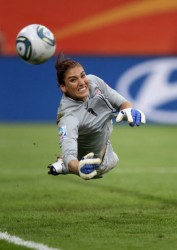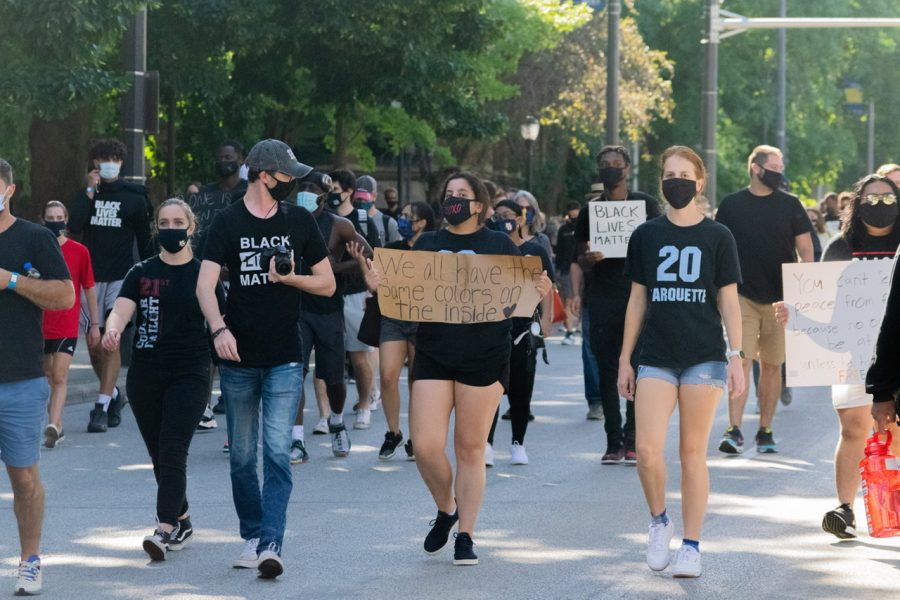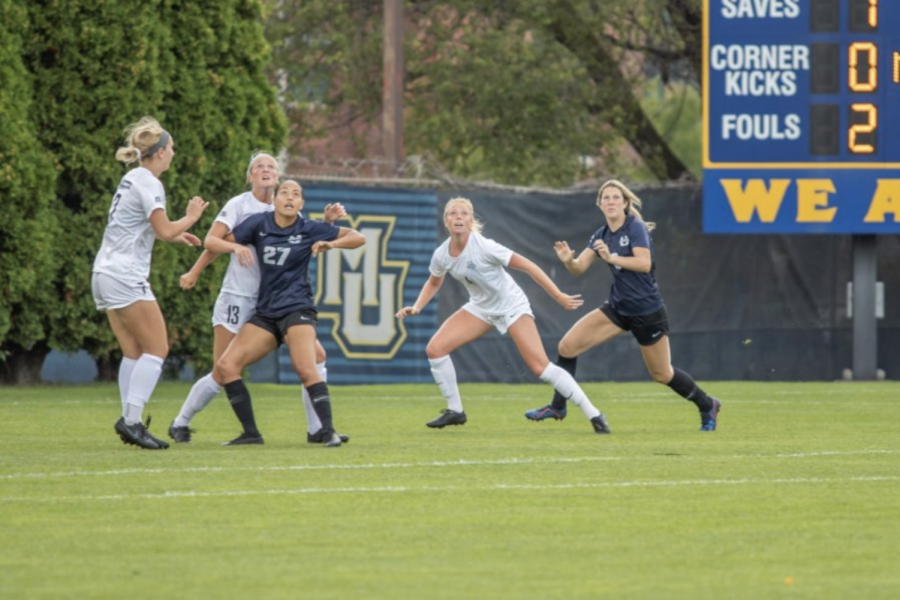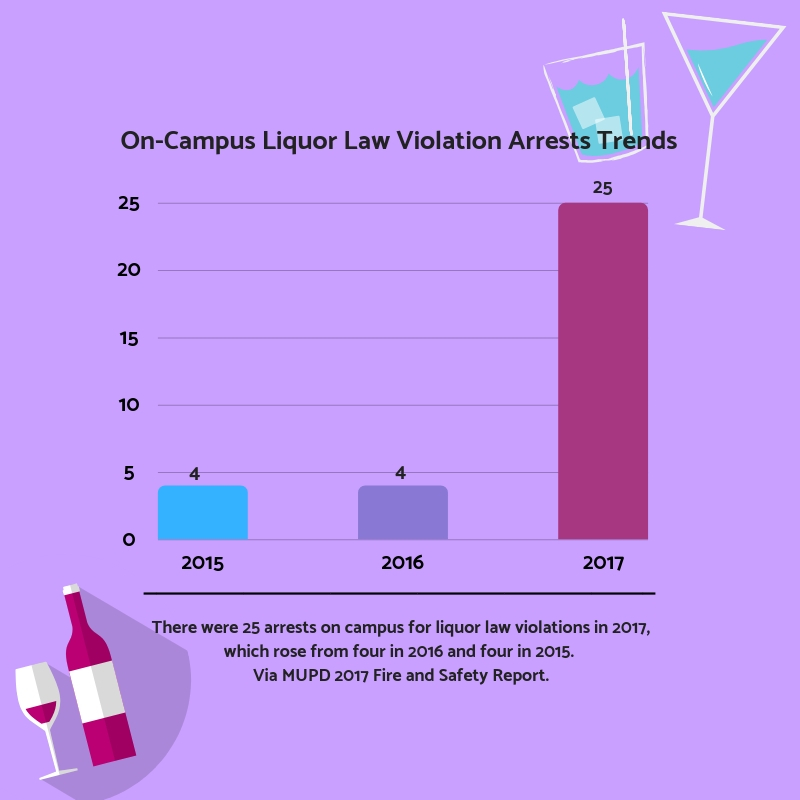 Recent news headlines report what seems like story after story of domestic violence cases between NFL players and their partners. The men involved in these cases received public backlash as well as strict penalties by the NFL including team suspension or release and indefinite suspension from the sport.
Recent news headlines report what seems like story after story of domestic violence cases between NFL players and their partners. The men involved in these cases received public backlash as well as strict penalties by the NFL including team suspension or release and indefinite suspension from the sport.
Someone not on the receiving end of the same treatment is Hope Solo, the goalkeeper for the U.S. Women’s National Team. Solo currently faces two charges of misdemeanor domestic violence. Solo is accused of violence against her half-sister and nephew from earlier this year, yet still plays for the national team, at no current penalty.
While women’s soccer is a lower profile sport in the United States compared to men’s football, Solo’s situation is not very different from those of NFL players, Ray Rice and Adrian Peterson. She has not drawn the same response or treatment for committing violence, and it begs the question of why the incidents led to different results.
Gender is the first thing that comes to mind when considering how these cases differ. The charges brought against Solo may not be taken seriously by different sponsors, the public or U.S. Soccer due to the fact she is a woman. While Nike dropped players such as Rice, Solo is still endorsed by the brand and nothing has been addressed regarding her continued or discontinued sponsorship.
Another aspect that may contribute to this tension is the distinction between general violence and domestic violence. General violence is intentional physical harm on another individual, while domestic violence is the same but implies a familiar relationship with the person subjected to abuse.
Why are the two any different, with different resulting treatments? The intention behind each is the same, so logically the punishment should be as well.
These two very similar definitions are kept separate in legal aspects. The 2014 Department of Public Safety Fire and Safety Report categorized them as two different things. People look at violence against partners or close family much worse than violence against an acquaintance or stranger, especially in cases where the aggressor is a female. When considering crimes of domestic abuse, most people automatically think of a man inflicting harm upon a woman. In the case of Hope Solo, society may not react in the same way as with Rice, since we often have this image of domestic violence being done by men to harm women.
By separating the two, the issue is brought up as to whether incidents of violence and incidents of domestic violence should result in the same forms of punishment and if the assailant’s gender affects the punishment. Female aggressors, like Solo, may not considered a legitimate threat in violent cases, and this can affect how cases are prosecuted.
Solo allegedly committed a crime of violence like those NFL players under investigation. It is clear that the public reaction to the Rice situation played a huge role in his dismissal from the NFL. Solo, a female athlete in a less popular U.S. sport, is treated differently in her similar circumstances. This is not only unfair, but is a clear statement about the role gender plays in incidents of violence.








